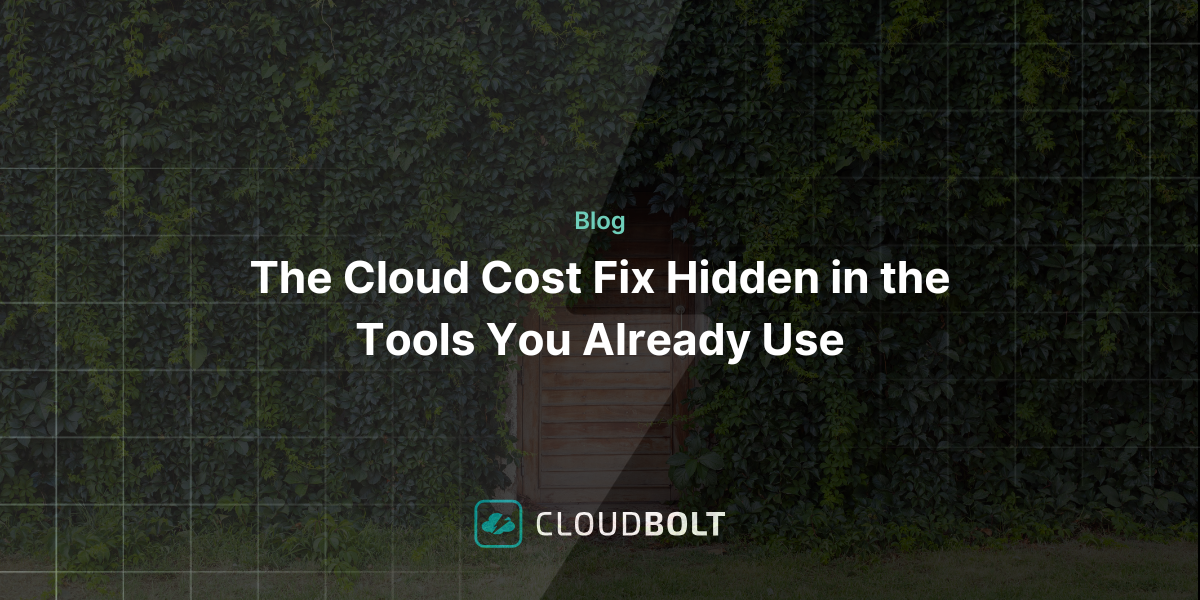Weekly CloudNews: The complex layers of cloud computing sustainability
Welcome to this week’s edition of CloudBolt’s Weekly CloudNews!
First, here is our latest announcement:
With that, onto this week’s news:
https://www.infoworld.com/article/3656792/the-complex-layers-of-cloud-computing-sustainability.html
David Linthicum, InfoWorld, April 12, 2022
“Cloud requires less power for the same amount of processing. Does this always make cloud computing green—or should we say, ‘greener’? The word ‘always’ rarely turns out to be accurate. It’s the same with clouds—the issues are rarely black and white. To investigate cloud sustainability, let’s break it down into the two major layers. The argument for cloud computing sustainability is that it reduces the required hardware and data center space. However, both cloud and non-cloud application processing requires power grids driven by fossil fuels. The opportunities to reduce cloud-related carbon not only depend on the use of sharable IT resources in public clouds but also the locations of the data centers for public clouds.
“The trend is to have points of presence as close as possible to those using the cloud services. Many of those points depend on carbon-heavy power sources. In those instances, cloud computing is not as green. No matter if your power burns fossil fuel or not, much can be said about how you optimize the cloud resources you use. Remember: There are cost and carbon impact penalties if you put under optimized solutions on a public cloud. The more unnecessary resources, the more unnecessary cloud fees. Depending on how your public cloud provider powers its data center, this could also have a significant impact on carbon output.”
Google Cloud survey finds most execs support sustainability efforts, but few follow the data
Ron Miller, TechCrunch, April 13, 2022
“A new survey by Google Cloud that was conducted by The Harris Poll found that a vast majority of executives see sustainability as a key goal for their business. It also found that a majority are not actually measuring their progress over time. Google Cloud surveyed 1,491 C-level executives or vice presidents across 16 countries to get a broad view of the sustainability issues that companies are facing. The good news is that 80% of respondents believed that their company is doing a good job around sustainability, which sounds great. But then they asked them how they were measuring their progress.
“The research showed a troubling gap between how well companies think they’re doing, and how accurately they’re able to measure it. Only 36% of respondents said their organizations have measurement tools in place to quantify their sustainability efforts, and just 17% are using those measurements to optimize based on results,’ Justin Keeble, managing director of global sustainability at Google Cloud, wrote in a blog post describing the results.”
How AI could help enterprises to reduce data storage costs
Kyle Wiggers, VentureBeat, April 7, 2022
“The amount of data managed by the world’s enterprises is growing. According to one source, the total amount of data created, captured, copied and consumed globally was about 64.2 zettabytes in 2020 — equal to a trillion gigabytes. Unsurprisingly, companies report that the cost of storing their data is also climbing. In a 2018 Enterprise Storage Forum survey, business leaders said that the high costs of operation, a lack of storage capacity, and aging equipment were among their top concerns.
During the pandemic, the pressure to digitize operations led a record number of companies to move to the cloud. According to a recent survey from O’Reilly, 90% of organizations were using cloud computing of some kind in 2021, while Flexera’s State of the Cloud Report shows that 35% of companies spent more than $12 million on cloud operations in 2021.”
Discover how a framework can transform your enterprise cloud strategy. Request a demo today.
Related Blogs

The End of Manual Optimization: Why We Acquired StormForge
Today is a big day for CloudBolt—we’ve officially announced our acquisition of StormForge. This marks a major milestone for us…

